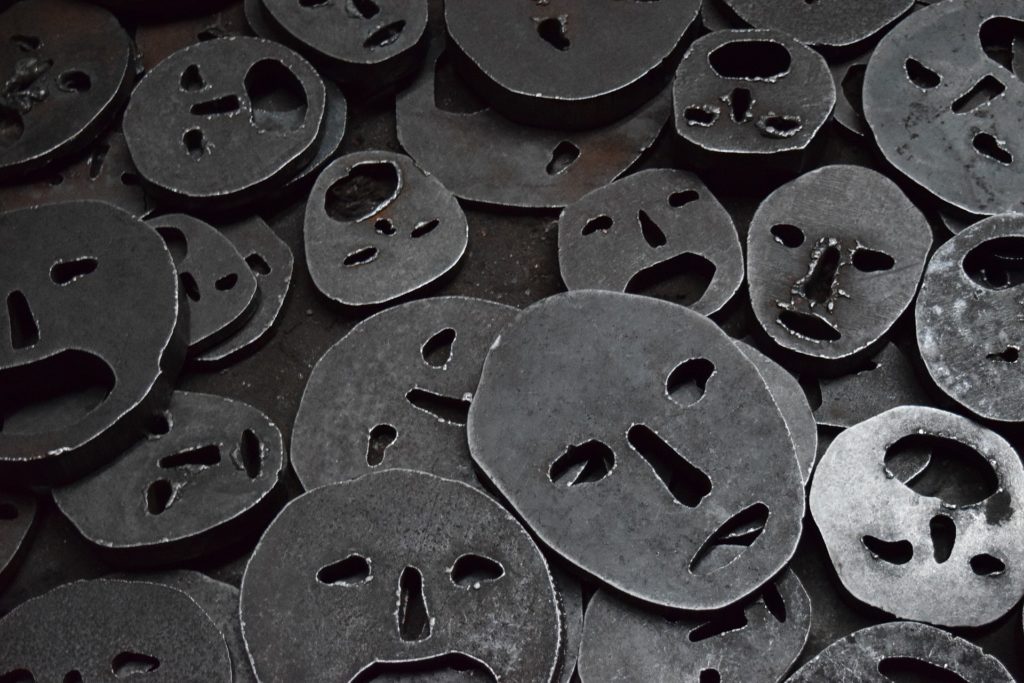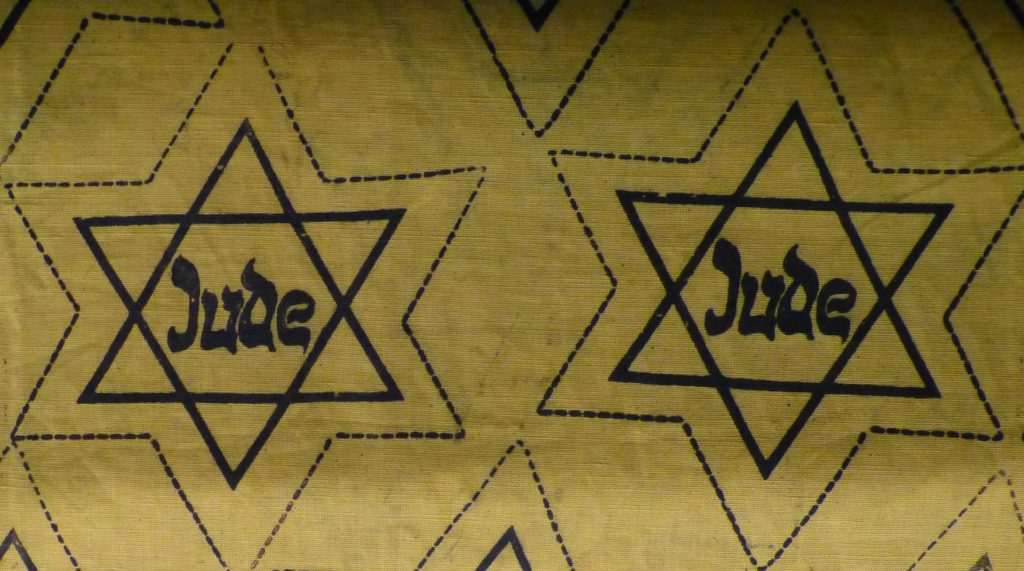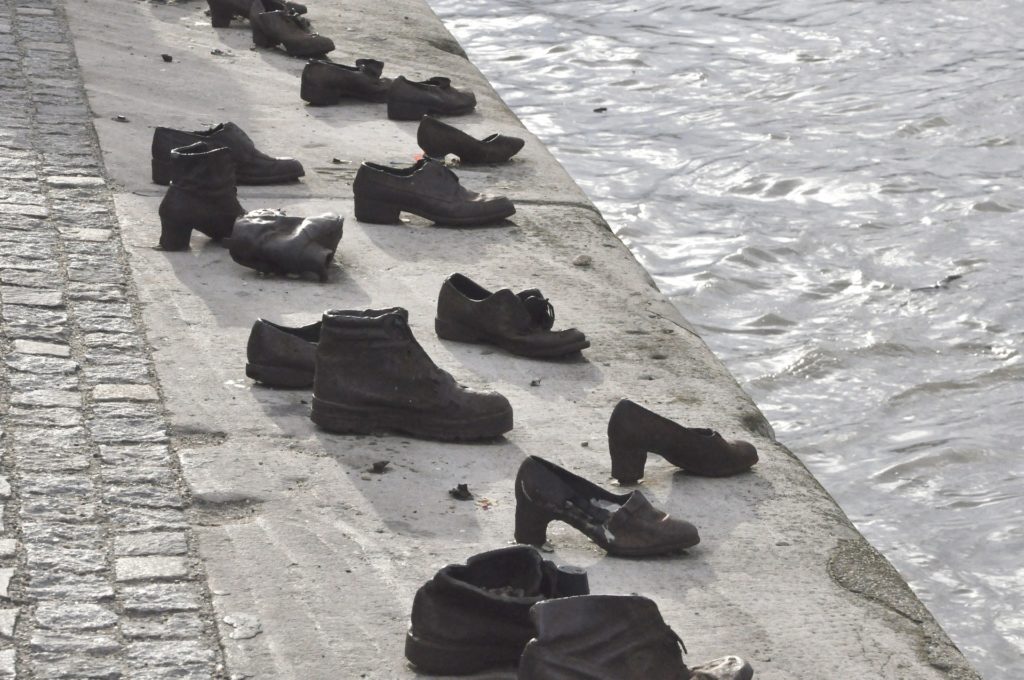Table of Contents
The Holocaust, Ancestral Patterns, and Illness
Addressing ancestral Holocaust trauma with Recall Healing is a transformative process that allows descendants of Holocaust survivors to understand their ancestors’ stories and release inherited emotional conflicts. Understanding your ancestors’ stories is essential for self-awareness and emotional freedom. Regardless of your background, your family lineage significantly shapes your subconscious mind. Many of your decisions, behaviors, and even some health challenges are connected to the experiences of your ancestors.
Having worked extensively with the Recall Healing with Holocaust survivors’ descendants, I have observed how the Holocaust profoundly impacts the descendants of survivors, even generations later. These effects often manifest in physical health challenges, emotional well-being, and recurring behavioral patterns.
What is Recall Healing?
Recall Healing is a consultation method grounded in biology and scientific principles. It helps uncover and address subconscious traumas by bringing them into conscious awareness through guided conversations with a trained practitioner. This process enables individuals better to understand the subconscious root causes of their challenges, empowering them to achieve emotional transformation and improved well-being.
[Click here to read more about Recall Healing.]
This article explores the personal and health-related implications of the Holocaust and World War II on the descendants of survivors, supported by case studies illustrating how Recall Healing can address inherited emotional patterns and conflicts.
The “Side Effects” of Holocaust Ancestral Trauma
While working with descendants of Jewish Holocaust survivors, I have also had the opportunity to guide individuals whose ancestors were from Germany and other countries deeply affected by World War II.
The subconscious often carries unresolved traumas from previous generations. These inherited patterns may manifest in various ways, including:
- Physical Health Challenges include digestive issues, chronic pain, and other conditions.
- Emotional Struggles: Including anxiety, depression, and irrational fears.
- Behavioral Patterns: Such as recurring self-sabotaging behaviors or strained family dynamics.
Impact Across Generations
For descendants of Holocaust survivors, these effects often persist through the 2nd, 3rd, or even 4th generations. Many individuals are unaware of the experiences their ancestors endured over 70 years ago; yet, these unspoken stories may still influence their health, emotions, and relationships.
Examples of how these patterns may arise include:
- Digestive problems reflecting ancestral experiences of starvation.
- Anxiety or fear rooted in terror from traumatic events.
- Family dynamics echo unresolved grief or guilt from past generations.
Recall Healing provides a means to release inherited conflicts by bringing awareness to hidden patterns and emotional root causes. It helps individuals transform their lives and improve their emotional and physical well-being.
Why the Brain Stores Traumas and Its Role in Healing Ancestral Holocaust Trauma
Traumas and significant life experiences are stored in the subconscious and passed down through generations. These inherited memories influence behavior, the nervous system, thoughts, emotions, and beliefs—even if the individual is unaware of the original incident that triggered them. Healing ancestral Holocaust trauma helps individuals release the genetic imprints tied to their ancestors’ suffering.
The key to breaking free from these subconscious patterns is to bring awareness to the hidden trauma. Once the trauma is acknowledged and processed, the individual and their genetic lineage can experience emotional and physical relief.
Biological Perspective on Trauma Storage
From a biological standpoint, traumas are preserved and transmitted to future generations as a means of survival. Epigenetics, which studies how environmental factors and experiences affect gene expression, supports this concept.
Traumas are passed down so that descendants can “remember” and better cope with similar challenges if they arise. This survival strategy is nature’s way of ensuring that what worked for previous generations—leading to their survival—is not forgotten. You are living proof of this evolutionary process.
For example, if an ancestor endured famine, the body might store genetic memory that influences dietary behaviors or metabolism in future generations. While this mechanism aids survival, it can also manifest in ways that feel limiting or maladaptive today.
Why Does the Holocaust Have Even “Stronger” Side Effects on Our Bodies and Brain?
In Recall Healing, every trauma—such as death, loss of a child, or severe illness—becomes preserved as genetic memory. However, the trauma of the Holocaust carries unique characteristics that amplify its effects on the brain and body.
What Makes the Holocaust Unique?
The Holocaust did not just threaten an individual or family—it endangered entire communities, nations, and genetic groups. It erased property, culture, memories, and a way of life for millions, leaving survivors in a prolonged state of despair and hopelessness.
This scale and severity of trauma create a more profound imprint on the genetic and subconscious memory of survivors and their descendants. Unlike a singular tragedy, the Holocaust:
- Threatened the survival of entire families and genetic groups.
- Induced extreme psychological and physical stress for extended periods.
- Left with few apparent solutions for survival, it heightens the sense of helplessness.
How the Holocaust Impacts Descendants
For descendants of Holocaust survivors, the ancestral trauma often expresses itself in various forms, including:
- Physical health challenges: Conditions such as celiac disease, shingles, joint diseases, obesity, and autoimmune disorders.
- Emotional struggles: Anxiety, financial stress, or relationship challenges.
- Behavioral patterns: Nutrition choices, professional decisions, and even learning difficulties.
These inherited effects highlight how trauma is not just a psychological experience but also one that profoundly impacts physical health and life choices. By understanding and addressing these patterns through methods like Recall Healing, individuals can work toward releasing the subconscious hold of ancestral trauma and creating a healthier life for themselves and future generations.
Case Studies of Holocaust Survivors’ Descendants in Recall Healing
Celiac Disease and the Holocaust
Susan, a woman in her fifties, had Celiac disease with extreme sensitivity to even the slightest trace of gluten. According to Recall Healing, Celiac disease is often linked to an emotional trauma involving bread or wheat. Like other allergies, the brain connects the trauma to the presence of gluten.
Susan was named after her grandmother, establishing a strong ancestral connection. Her grandmother, a Holocaust survivor, endured a harrowing experience in a concentration camp. Family history revealed the following story:
- Susan’s grandmother received a minimal daily bread ration, which she divided among herself, her children, and her older mother. Her husband, who was in hiding, was not included in the ration.
- Every day, she faced the emotional torment of dividing the tiny bread portion while watching her family starve. Tragically, her mother eventually died of starvation. In her subconscious, she blamed herself, associating bread and gluten with guilt, death, and suffering.
Susan felt an intense emotional release when she uncovered this connection during a Recall Healing session. She recognized how her subconscious had linked bread and gluten to her grandmother’s trauma.
The next day, Susan tested her sensitivity by eating bread—something she hadn’t done in years. To her amazement, she experienced no adverse reaction. Her brain resolved the subconscious conflict, releasing the emotional connection tied to gluten.
Arthritis and the Holocaust
A 32-year-old woman came to the clinic with persistent wrist pain, diagnosed as arthritis. She had been experiencing this pain for a year and had tried various medications with little success.
During her acupuncture session, she realized that her wrist pain had started when she turned thirty-one—the same age her grandmother had been when she died in the Holocaust. Her grandmother’s story was one of the few pieces of family history she knew.
This realization brought the subconscious conflict to light. The pain in her wrist symbolized her emotional connection to her grandmother’s tragedy. Addressing this awareness, her subconscious released the emotional tension tied to her arthritis. She experienced complete relief from the pain in just one session.
How Recall Healing Transforms Lives
These case studies illustrate how the subconscious mind stores unresolved ancestral traumas, which can affect physical and emotional health in later generations. Recall Healing helps individuals free themselves from inherited patterns and experience profound emotional and physical transformation by uncovering and addressing these hidden conflicts.
How to Fix Ancestral Patterns in Recall Healing?
Healing ancestral patterns through Recall Healing involves identifying connections between emotional conflicts and the unresolved experiences of one’s lineage. By understanding the origin of these patterns, the subconscious mind can release the conflict, leading to emotional and physical relief.
During the process, individuals often have an “aha” moment where they realize, “Oh, this isn’t mine—it belongs to my ancestor.” This recognition enables the brain to resolve the conflict rapidly and effectively. Recall Healing states every illness or behavioral pattern is linked to a subconscious belief or conflict. The framework used in Recall Healing helps identify these patterns and how they manifest in the individual’s life.
Secrets in the Family of Holocaust Survivors
In Recall Healing, it is strongly recommended that you not keep family secrets. While complex events or traumas may feel easier to avoid, keeping them hidden does not protect descendants. Instead, it can amplify the conflict, making it harder to access and resolve. By addressing hidden stories, healing ancestral Holocaust trauma becomes possible as the brain processes these buried conflicts.
The subconscious remembers what happened even if the conscious mind is unaware of the details. The brain can process and release the associated trauma by uncovering and discussing these hidden events.
Case Study: Secrets and Shingles in Recall Healing
A man in his fifties came to me seeking treatment for shingles. Throughout his life, he had felt a lack of freedom, which impacted his relationships with his wife and children and created challenges in various areas, including his university and work environments.
Through Recall Healing, we discovered that he was named after his grandfather, who had a tragic story during the Holocaust. His grandfather and his family had been hiding underground from the Nazis. One day, his grandfather decided to leave their hiding place to search for food, but he was captured and killed.
This conflict of “wanting to be free but fearing it would hurt my family” was passed down to the grandson’s subconscious. Although the man only learned about his grandfather’s story a few years earlier, he had unknowingly carried this emotional pattern throughout his life.
The man could release the subconscious belief by connecting the shingles to his grandfather’s conflict. His brain resolved the emotional tension, and his shingles disappeared in one session.
The Power of Awareness
By uncovering ancestral patterns and bringing awareness to hidden family stories, Recall Healing helps individuals release long-held emotional conflicts. This process benefits the individual and can have a positive impact on future generations by breaking the cycle of inherited trauma.

Typical Patterns in Holocaust Survivors’ Descendants
“End of the World” Fear
One typical pattern among descendants of Holocaust survivors is an intense existential fear—a subconscious belief that “suddenly everything will end” or “everything will be taken away.” This fear often creates limitations in life, such as:
- Avoiding success in relationships or business.
- Settling for mediocrity due to fear of losing everything once it is achieved.
The underlying thought might be: “If I achieve too much, there will be too much to lose.” This fear of falling often outweighs the desire to rise, leading individuals to live below their full potential.
General Anxiety or Paranoia
A sense of general anxiety or paranoia is also prevalent. The brain is constantly on alert, warning that tragedy could strike again at any moment. This can lead to difficulty trusting others or feeling secure, even in stable environments.
Fear of Lack
Descendants often subconsciously fear a lack of something, whether it involves food, love, family warmth, or security. Even when these needs are met in reality, the individual may still feel insufficient, driven by ancestral memories of scarcity and deprivation.
Releasing Genetic Fears
In all these cases, understanding that these fears are genetic imprints rather than present-day realities allows the brain to release them. By bringing these subconscious beliefs to light, individuals can:
- Let go of inherited fears.
- Live healthier lives—physically, emotionally, and mentally.
- Honor their ancestors’ legacy by thriving, not just surviving.
Conclusion
The traumas and patterns passed down from Holocaust survivors to their descendants highlight the profound impact of inherited memories on physical and emotional health. Through methods like Recall Healing, we can uncover these subconscious patterns, address their emotional roots, and free ourselves from their hold.
This process is transformative for the individual and breaks the cycle for future generations, creating a legacy of healing and empowerment. Understanding and healing ancestral Holocaust trauma allows future generations to live healthier, more fulfilled lives, something our ancestors would undoubtedly wish for us.





